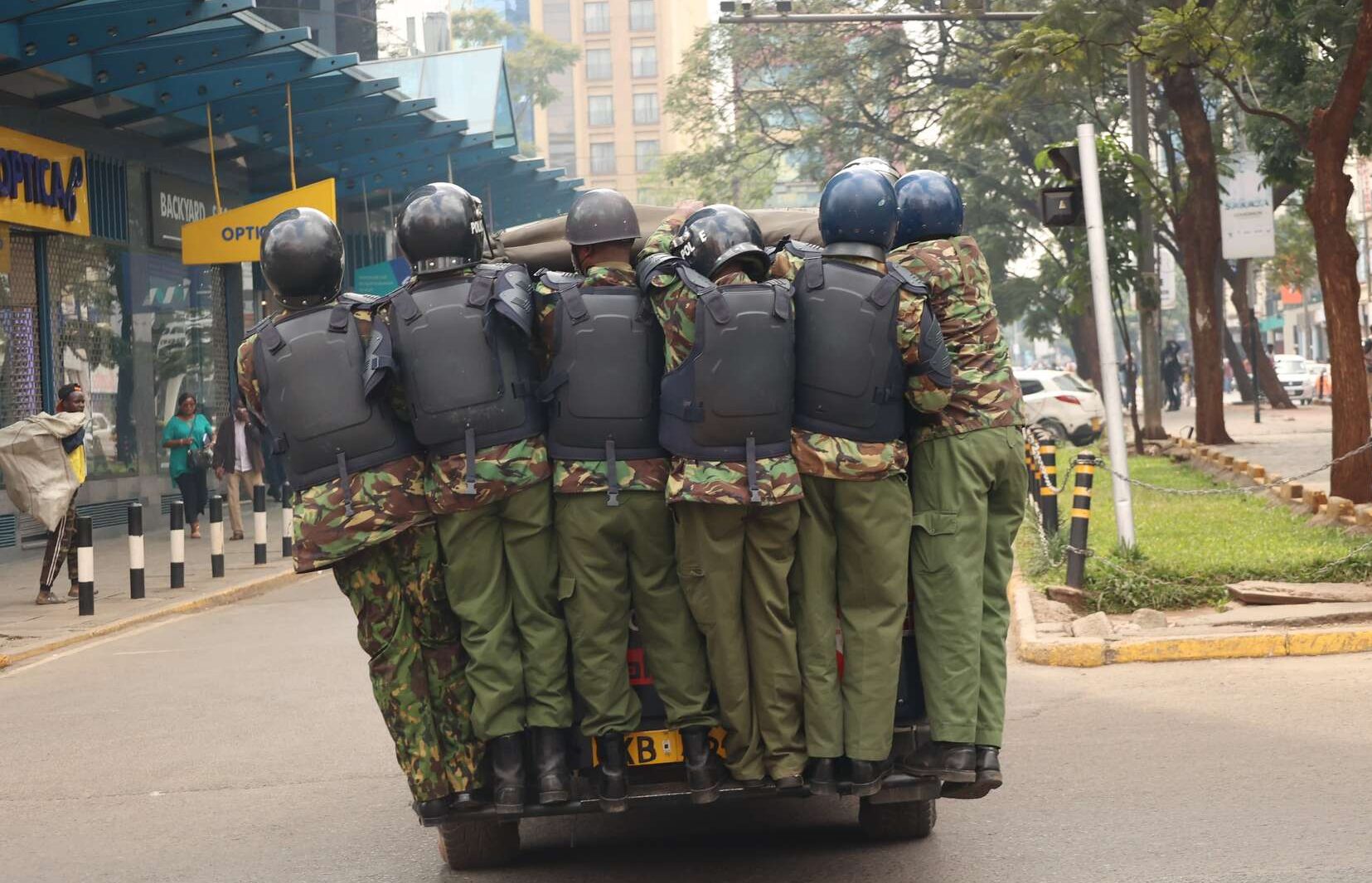
The Ministry of Labour and Social Protection has received claims worth Sh2.2 billion from security officers who were injured in the line of duty.
The Directorate of Occupational Safety and Health Services (DOSHS) told the Senate Committee on Defence and Foreign Relations that it has received 2,114 accident notifications from the National Police Service.
“The distribution is as follows: Kenya Police Service (1,512), Administration Police Service (494), and Directorate of Criminal Investigations (108),” said Musa Nyandusi, the Secretary of Occupational Safety and Health.
“All notifications have been processed in accordance with the Work Injury Benefits Act (WIBA) administrative procedures, and requisite computations have been forwarded to the respective formations to facilitate payments.”
From the Sh2.2 billion pending injury compensation, the Kenya Police Service has the highest number of claims at 1,512, followed by the Administration Police Service (494) and the Directorate of Criminal Investigations (108).
Appearing before the Senate committee that is inquiring into a public petition concerning the compensation of police officers injured in the line of duty, Mr Nyandusi told the team chaired by Isiolo Senator Fatuma Dulo that DOSHS, in collaboration with the National Police Service, has continued to process compensation claims under the WIBA framework. These compensations are made based on verified medical assessments and the statutory computation formula.
He said the Directorate maintains comprehensive records of all claims received, which will be shared with the committee for concurrence and validation.
“It is important to note that DOSHS does not undertake claim settlement. The Directorate is limited to assessment, computation, and issuance of a certificate of payment upon confirmation of settled claims received, which will be shared with the committee for concurrence and validation,” Mr Nyandusi said.
“The role of DOSHS is limited to assessment, computation, and issuance of certificates upon payment confirmation of settled claims in accordance with WIBA provisions.”
Mr Nyandusi told the Senators that the scheme, funded by the government through the National Treasury, was established for settlement of monetary compensation from January 1, 2021.
“Despite a formal request, the National Health Insurance Fund never shared with us any returns on the compensations settled under the Work Injury Benefits Act, 2007, as per our letter Ref. No. ML&SP/DOSH/HSW/11/40/Vol. 1 dated January 16, 2025,” Mr Nyandusi said.
He said the Kenya Police Service had compensated 14 out of the 1,512 injured officers, leaving a balance of 1,498.
Data submitted before the committee shows that 11 out of the 494 Administration Police officers injured in the line of duty had been paid.
None of the 108 Directorate of Criminal Investigations (DCI) officers has received compensation for injuries sustained in the line of duty.
In total, out of the 2,114 officers injured in the line of duty and demanding Sh2.2 billion in compensation, only 25 have been paid their dues.
“The WIBA Act, 2007, lacks clear and effective provisions empowering officers of the DOSHS to prosecute non-compliant employers or institutions,” Mr Nyandusi said.
“This weak enforcement capacity undermines accountability and leads to chronic delays in compensating injured officers.”
The injured police officers told Senators that disputes over compensation have become frequent and protracted, primarily involving the defunct National Health Insurance Fund (NHIF), now the Social Health Insurance Authority (SHA), as the main disputant.
Mr Nyandusi stated that in several cases, the NHIF has challenged computed compensation awards and subjected injured police officers to unauthorized second medical examinations not sanctioned by the Director of Work Injury Benefits, as required under Section 25 of the Work Injury Benefits Act, 2007.
“These actions contravene the law, undermine the authority of the Directorate of Occupational Safety and Health Services (DOSHS), and inordinately delay the finalization of compensation,” Mr Nyandusi told lawmakers.
“As a result, many officers continue to suffer without timely redress despite their injuries having been duly assessed and computed in accordance with the WIBA Act, 2007.”
Mr Nyandusi said the current employer-liability system under the WIBA Act, 2007, has proven unsustainable for workers across all sectors, including the National Police Service, as it results in long delays, inconsistent payments, and inadequate post-injury support.
“The proposed Workers’ Injury Compensation Fund Bill, 2024 offers comprehensive and sustainable solutions by establishing a central fund for employers and public institutions to ensure timely and guaranteed compensation for all injured workers, and incorporate rehabilitation and reintegration programmes to restore the dignity, well-being, and productivity of those injured in the course of their duties.”



